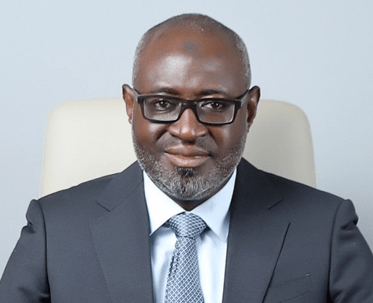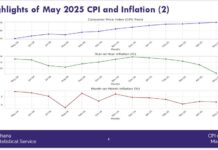By Aliyu ABOKI, Executive Secretary of WATRA
In today’s digital age, technology has become a transformative force, reshaping industries, disrupting traditional business models, and empowering millions globally. West Africa, a region rich in cultural diversity and teeming with youthful energy, stands at a critical juncture. With the right approach, it can harness digital technologies to significantly alter its economic trajectory and narrow the gap with more developed regions.
The West Africa Telecommunications Regulators Assembly (WATRA) is at the forefront of this transformation. As a collaborative forum for regional regulators, WATRA is instrumental in crafting regulations that encourage investment and expand access to affordable digital services. By doing so, we can unlock West Africa’s digital future, fostering resilience, inclusivity, and sustainable growth.
West Africa’s potential for digital transformation is immense. With over 400 million people and a median age of just 18.6 years, the region boasts one of the world’s youngest populations. This demographic reality presents both challenges and opportunities. On the one hand, millions of jobs need to be created to accommodate this growing workforce. On the other, the digital economy—if properly harnessed—could add $180 billion to Africa’s GDP by 2025, according to the World Bank.
Technologies like mobile internet, IoT, AI, and blockchain aren’t just buzzwords; they are powerful tools that can drive innovation across key sectors such as agriculture and finance. Africa’s internet penetration rate stood at around 43% in 2023, with West Africa witnessing rapid growth. This surge has created a fertile environment for digital enterprises, fueling job creation and economic diversification.
Take Nigeria, for instance, where the fintech sector alone attracted over $1.6 billion in investment in 2021—60% of the total venture capital raised in Africa that year. Platforms like Paystack and Flutterwave have not only revolutionized digital payments but have also inspired a wave of startups, proving that African innovation can thrive on a global stage.
Yet, challenges remain. Internet access varies widely across West Africa. Nigeria, a key market, has an internet penetration rate of 47%, with over 109 million users. While mobile internet has expanded access to previously underserved areas, a digital divide persists. Rural areas, in particular, struggle with affordable and reliable internet, and digital literacy remains uneven. In countries like Sierra Leone and Liberia, penetration rates hover below 20%, underscoring the uneven distribution of digital resources.
To fully harness the potential of digital technology, West Africa must address a critical issue: the “usage gap.” This gap refers to the disparity between the availability of telecommunications infrastructure and gadgets and the effective use of these technologies to improve access to social and public services.
Closing this gap means not only deploying more infrastructure but also creating applications that are both relevant and user-friendly, especially for the millions of West Africans with low literacy rates. By focusing on convenience and accessibility, we can bridge this divide and ensure that digital advancements benefit all citizens, transforming everyday lives and driving regional progress.
Moreover, careful management of the communications spectrum is vital to this transformation. Optimal spectrum fees enable telecommunications companies to invest more in infrastructure, leading to better quality and more affordable services. This, in turn, can accelerate the delivery of digital benefits across the region.
Closing the usage gap requires targeted strategies. Expanding broadband infrastructure in rural and underserved areas is crucial, and public-private partnerships will be essential to mobilize the resources needed.
The African Development Bank (AfDB) has played a significant role in financing projects to improve ICT infrastructure in West Africa. For example, the Central African Backbone (CAB) project aims to connect landlocked countries to high-speed internet via submarine cables on the coast. Ensuring the resilience of West African submarine cables is also vital for reliable internet connectivity. Strengthening monitoring and disaster recovery measures will help mitigate risks and bolster the region’s digital infrastructure.
A supportive regulatory environment that encourages innovation while protecting consumers is equally important. WATRA is dedicated to harmonizing policies across member states to ensure a seamless digital experience.
We focus on critical issues such as data protection, cybersecurity, and digital inclusion. Furthermore, establishing a robust regulatory framework for Non-Geostationary Satellite Orbit (NGSO) operators, like Starlink, will enhance innovation and inclusion while maintaining fairness for terrestrial network operators.
The Africa Continental Free Trade Area (AfCFTA), implemented in 2021, presents a unique opportunity to create a unified digital market across the continent. By lowering barriers to cross-border digital services, AfCFTA could boost e-commerce, making it easier for SMEs to access regional markets.
The success of the digital economy hinges on a skilled workforce. Investing in digital literacy programs and STEM education is essential to empower the youth, bridge the skills gap, and foster a culture of innovation. Programs like Google’s Digital Skills for Africa, which has trained millions, are critical in preparing the next generation. Collaborations between governments, tech companies, and educational institutions are vital in developing curricula that meet industry needs.
Digital financial services, such as mobile banking and fintech solutions, have the potential to bring millions of unbanked individuals into the formal economy. As of 2017, nearly 60% of adults in Sub-Saharan Africa lacked a bank account, relying instead on informal financial services. However, mobile money services, pioneered by companies like M-Pesa in Kenya, have revolutionized financial inclusion.
In West Africa, telcos like Orange, MTN, and Airtel are replicating this success. Promoting financial inclusion through digital platforms can enhance economic participation, particularly among women and the rural population.
SMEs are the backbone of West Africa’s economy, accounting for over 80% of employment. However, they often face barriers to accessing capital and markets. Digital technologies can play a transformative role in overcoming these challenges.
Social media and e-commerce platforms like Jumia have opened new markets for SMEs, enabling them to reach customers beyond their immediate vicinity. Providing SMEs with access to capital, mentorship, and market opportunities will empower them to leverage digital technologies for growth, with a focus on global markets.
As the umbrella body for telecommunications regulators in West Africa, WATRA is pivotal in facilitating the region’s digital transformation. Our mandate includes policy advocacy, capacity building, collaboration, and research.
We advocate for policies that promote digital inclusion and innovation, ensuring that regulatory frameworks keep pace with technological advancements. Through training and workshops, we enhance the capacity of regulatory bodies and industry stakeholders. We foster collaboration among member states, international organizations, and the private sector to drive collective progress. Additionally, we support research initiatives that provide insights into emerging trends and best practices.
The path toward a digitally empowered West Africa is challenging, but the rewards are immense. By embracing digital opportunities, we can unlock new avenues for economic growth, create jobs, and improve the quality of life for millions.
The digital economy is not just another sector; it is the future. WATRA is committed to leading this transformation. We call on governments, businesses, and civil societies to redouble their efforts. Together, we can build a digital ecosystem that is inclusive, resilient, and sustainable, propelling West Africa to new heights of prosperity.










